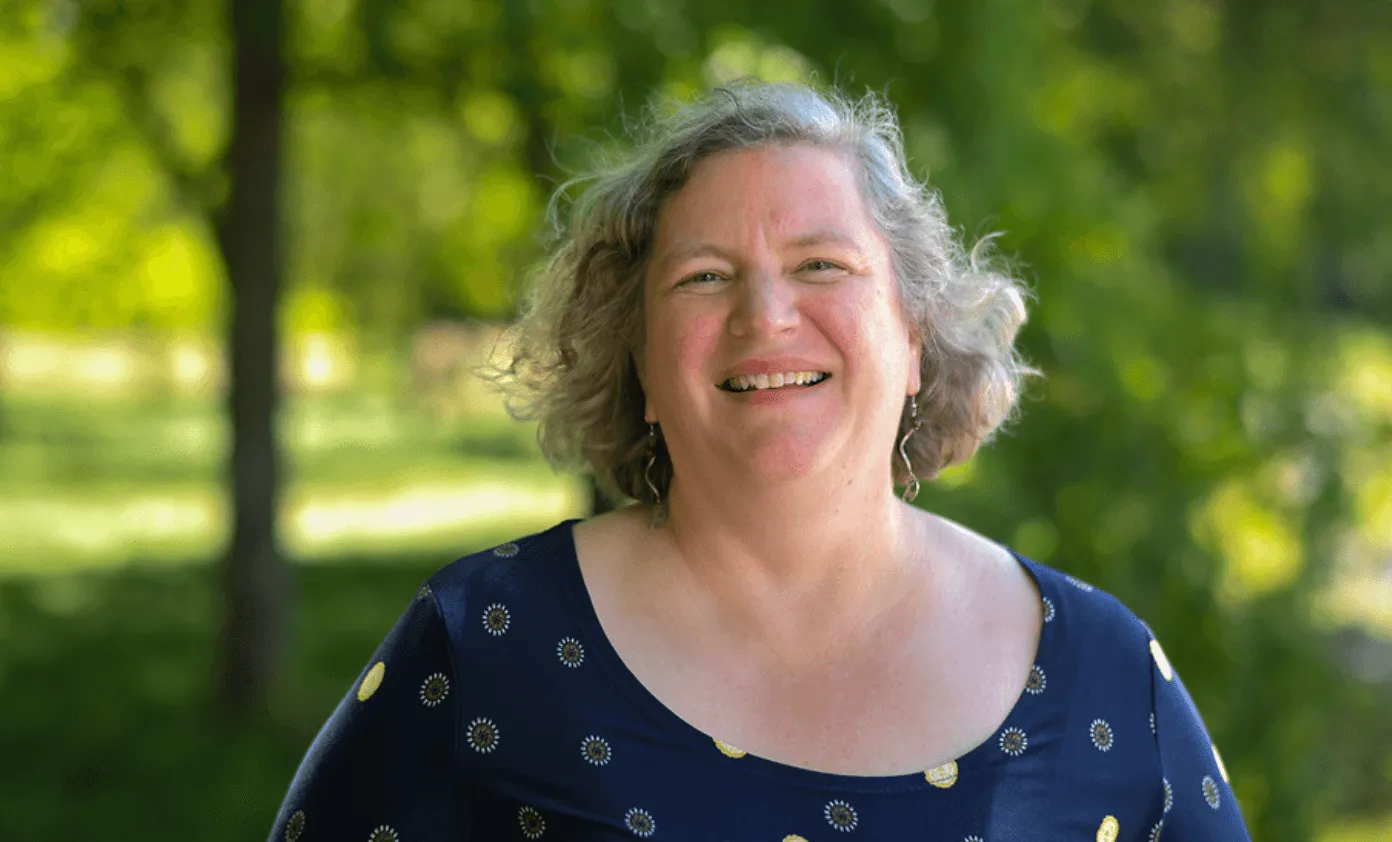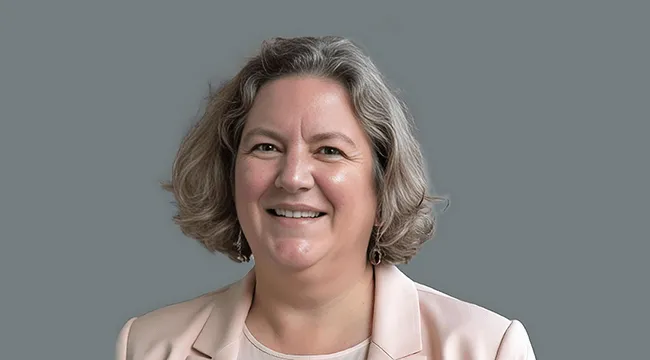Prokopy exudes the same kind of unbridled optimism that many students at UVM also display: a purposeful embrace of what is to come and all that might be possible, while staying present to what is. Her prior role as Head of the Department of Horticulture and Landscape Architecture at Purdue University with a three-way faculty appointment in Teaching, Research, and Extension gives her confidence that she has the right background to lead CALS, which includes Extension, as well as the Departments of Agriculture, Landscape and Environment, Animal and Veterinary Sciences, Community Development and Applied Economics, Microbiology and Molecular Genetics, Nutrition and Food Science, and Plant Biology.
At the recent CALS retreat for faculty and staff, Dr. Prokopy articulated the necessity for CALS to take a leadership role in the current cultural climate, “While we are in extremely challenging times for higher ed, I truly believe that if any university can be the model for what a land grant university can look like in this new era, it is this one. Our new UVM President, Dr. Marlene Tromp, uses the phrase “beacon of light” – UVM can be, through your work, a beacon of light for the state and the rest of the country.”
Prokopy followed up on this ambitious aspiration with her vision for how she intends to lead CALS in this direction. “My vision is for CALS to serve as the centerpiece of a robust, resilient, and sustainable university that supports resilient, sustainable, and healthy communities and working landscapes.” Her confidence gives those around her confidence that CALS’ new leader has a vision, possesses the skills to execute it, and has the determination necessary to bring about lasting, positive change.
When asked, "Why did she want the job?’"her response encapsulates her desire to live her values, “Belief has always been an important piece of who I am, and what motivates me. Everything I value is here: UVM’s Common Ground Values: Respect, Integrity, Innovation, Openness, Justice, Responsibility; CALS’ commitment to the three areas of our land grant mission: Research, Education, and Extension; UVM’s emphasis on ‘people and planet".
Prokopy also notes that during her interview process, a member of the Search Committee replied to her question about the CALS culture with the quip, “It’s not an Ivory Tower, it’s more like a barn.” She used this quote in her on-campus visit presentation, and it's now on the whiteboard in her office. Prokopy says that what she loved about it was the concept that CALS is doing work that matters to real people, right now.
When offered the job, she made two requirements before she would accept. One, to return to campus to tour CALS facilities. In her role as the Head of Horticulture and Landscape Architecture at Purdue, she was acutely aware that for a college like CALS to serve its students successfully and provide the kind of hands-on learning that degrees in Animal Science, Agroecology, or Microbiology and Molecular Genetics require, having facilities up to the task was essential. On her second tour she was able to take a close look at the Miller Research Complex which houses both the UVM CREAM dairy herd and the UVM horse barn coop and Equuis Center, the Proctor Maple Research Center on Mount Mansfield, the Horticulture Education and Research Center in South Burlington that includes the Catamount Educational Farm, the campus greenhouses, as well as several labs and teaching spaces. All of these are research and education facilities that CALS oversees, and for which as dean, she would need to steward.
Her second requirement before accepting the position was to meet the new, incoming UVM President, Dr. Marlene Tromp, to make sure their visions for UVM were aligned. A 30-minute Zoom conversation removed all her concerns in this area.
“I went into it with a list of questions, including: Do you appreciate the land grant mission? What is the role of a university like UVM when serving rural areas? But I didn’t get to ask any of them. Dr. Tromp just jumped in and told me how essential CALS is to the land grant mission. And how important it is that UVM serve the rural parts of Vermont.”
Prokopy's speech to her new CALS community included an acknowledgement that these are not the easiest of times, particularly in higher education, and that there are enormous challenges on the doorstep. Some that she underscored were:
- Grant funding, particularly at the federal level, is unstable and poses a threat to UVM and the CALS budgets. She vows to make the budget process transparent, to do everything possible to retain personnel, and to explore new sources of funding and pursue additional revenue opportunities.
- There is an American enrollment cliff of fewer students each year reaching undergraduate age, and therefore, fewer will be applying to college. She vowed to continue recruiting students who can most benefit from our programs and to ensure that CALS is training our students for the careers of tomorrow.
- She acknowledged that public trust in higher education has declined over the past few decades and offered to offset the public misperception of our work by strengthening ties that already exist between communities and the college, primarily through Extension, which is part of CALS. To facilitate this, she is encouraging a tighter connection between faculty and staff who work in different areas of the College. For example, she is encouraging Extension and Research personnel to collaborate to ensure that research is meeting the needs of stakeholders, and she is encouraging Education and Extension personnel to work together to make sure needed skills in the workforce are being taught to our students. She plans to address the misunderstanding that higher education is out of touch by communicating that stakeholder needs drive all of CALS’ work and that the college helps people throughout the state.
The challenges Dr. Prokopy outlines don’t seem to deter her optimism, and she remains grounded in her hope for CALS’ positive future.
“It is imperative for us to survive this moment. Not just survive it, use it to our advantage and come out stronger on the other side. Does that mean everything will look the same in 5 years? Absolutely not. In fact, it can’t. If we don’t change, we will drown. Academia, as a whole, is slow to change. We can’t do that going forward.”
Dr. Prokopy intends to immediately initiate a strategic planning process, enabling the college to articulate a clear plan for its future, including strategic goals and actionable steps. These goals can then be implemented and later measured to determine whether the College is meeting its primary objectives of educating the next generation, serving Vermonters with applied research outcomes, and protecting people and planet. Dr. Prokopy intends for the CALS Strategic Plan to be completed by the end of the current academic year. The university’s timeline for its strategic planning process is even more aggressive, and the UVM-wide strategic plan led by Dr. Tromp is scheduled to be completed by December.
Dr. Prokopy stands firm that she recognizes the moment we are in and will face it with the resilient attitude of a steadfast Vermonter, “We will be forced to change whether we like it or not. Let’s seize this moment to create the change that we want to see. While we honor the past and ensure we preserve the truly good things, let’s meet this moment together!”

